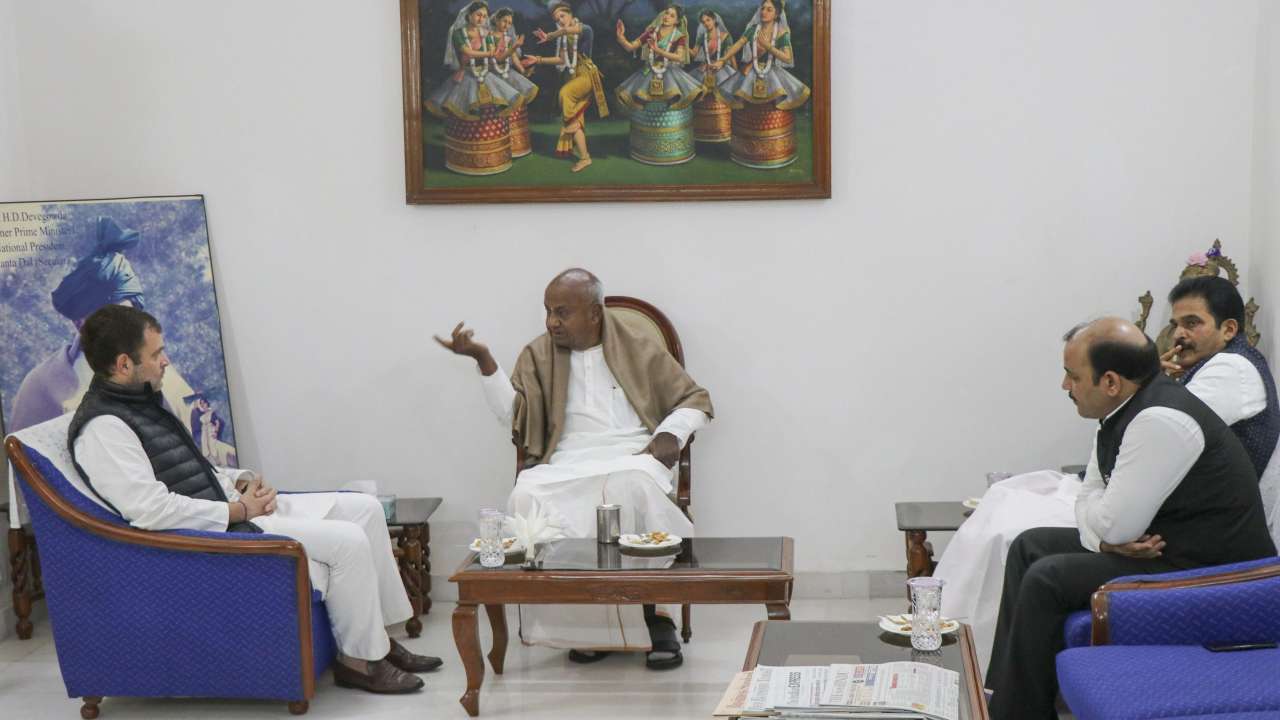
Congress, JD(S) do a tightrope walk on pre-poll alliance

The Congress and the Janata Dal (Secular) are on the verge of creating history in Karnataka by formalising a pre-poll alliance.
Talks which are on between the two parties in Delhi represented by the JDS patriarch and former Prime Minister H D Deve Gowda and Congress national president Rahul Gandhi have resulted in an agreement on seat share. Reports vary between nine and 10 seats for JDS and the remaining of the total 28 seats for the Congress.
The two leaders have authorised the two party general secretaries of the Congress, K C Venugopal and the JDS’s Kunwar Danish Ali to hammer out the nitty gritty of who fights from which constituency. The alliance is significant in more ways than one. For one, Karnataka politics would have come a full circle since the post-Emergency period when the Dal’s precursor Janata Party emerged on an anti-Congress platform.
Since then, the State has veered between the Congress and the Janata Dal until 2006 when the BJP got into a coalition with the Janata Dal Secular. This was followed by the BJP coming to power for the first time on its own in the 2008 Assembly elections. The three-way fight in Karnataka among the BJP, Congress and the JDS in the context of the overall national context of the rise of the BJP has triggered a previously unthinkable alliance between the erstwhile rivals – Congress and the JDS.
What marks out the current situation is that this is for the first time the two parties are in a pre-poll alliance. In May 2018, the two got into an alliance to form government but that was after the results were declared. Earlier, in 2004, the two parties had again tied up in a coalition to form government but that was an afterthought following election results.
The pre-poll arrangement has long-term consequences since the nature of the arrangement inherently means that the alliance has to work down to the grassroots level. On paper, the combination of the two is powerful and seriously threatens BJP’s chances. But on the ground for the alliance to work, it would entail long-standing local rivalries to be pushed aside and for the workers of the two parties to combine effectively.
Though the two parties have agreed to share the seats the trickier task is to identify who gets which seat to fight from. In the south of the state, other than Bangalore and the coastal region, the rest is dominated by either the Congress or the JDS. In the previous 2014 Lok Sabha election, of the total 28 seats the BJP won 17, Congress nine and JDS two.
While the Congress is the view that it will contest from all the seats it won, the JDS is reportedly eyeing a few seats which has its ally’s MPs, like Chikkaballapur and Tumkur. The challenge is how to resolve these ticklish problems. It would not be in the interests of either party for the seat-sharing to trigger local revolts and neutralise the advantages resulting from the pre-poll alliance.
The final arrangement will be an indicator of the sagacity of the leadership of the two parties and their political acumen.

